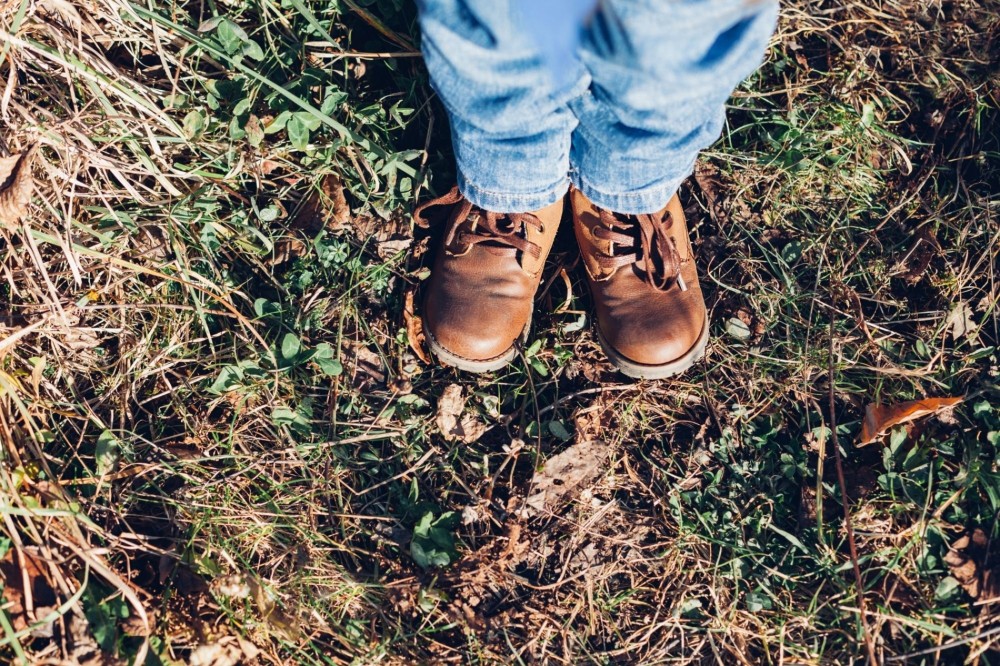
20 May 2021
Nature-based learning strengthens the immune system

One month is enough to play in the forest so that a child's immune system changes significantly. This is a conclusion from a recent study made by the Institute of Natural Resources in Finland. Escola Lá Fora interviewed Marja Roslund, one of the environmental scientists involved in the study, to find out more.
The study coordinated by the Institute of Natural Resources in Finland (Luke), where Roslund participated, found that children's exposure to the microbes found in nature increases significantly the diversity of human microbiota. According to the scientist, the idea behind this experience came from the rising number of autoimmune diseases that has been creating public health issues in most urban societies.
"This has led to a need to respond with new prophylactic practices that can fight these diseases", she explained. This is what led the group to get a 28-day experience with 75 urban children in different environments associated with the kindergarten they attend.
Modified playgrounds
The experience was divided into three groups: a group of children in standard playgrounds, "the most typical ones, covered in asphalt and gravel", one group in playgrounds with an intervention "modified with a forest floor, grass, blocks of turf and gravel" and a third group, in nature-focused schools, where children visited the forest on a daily basis (a bit like our Escola Lá Fora!).
The group was focused on preschoolers (3-5 years old) because it is a group exposed to the same types of environments, and very active. "Besides this, it is in childhood that the immune system develops", Roslund explains.
A revolutionary month
A month was all that was needed to find improvements in the immune system of children who attended the forest-inspired playground. The children who were most exposed to nature had:
- Biggest diversity of gammaproteobacteria in the skin;
- More multifunctional TGF-β cytokine, essential to regulate immune responses;
- A more favourable intestinal microbiota, in comparison with the children who were in urban playgrounds.
Friendly bacteria
Gammaproteobacteria are responsible for the immune defence of the skin and are associated with a higher proportion of regulatory T cells, essential in the prevention of autoimmune diseases and in the restriction of chronic inflammatory disorders. This presence is also associated with a reduction of interleukin inflammatory cytokin 17A, connected to the development of autoimmune diseases.
The risks of the city
This study was groundbreaking because it demonstrated that simple changes in playgrounds can protect children against diseases, preventing disorders in the immune system. This becomes even more important because we know that there is a difference between children who live in urban environments and those who live in rural environments, with a different microbiota. "The prevalence of autoimmune diseases is higher among children from urban environments", Roslund explains.
Loss of biodiversity
Why does this happen? The scientist explains: "the main reason for the high incidence of autoimmune diseases, including type-1 diabetes, asthma, atopic skin and allergies, is the biodiversity loss in urban areas, limiting the exposure to a diverse microbiota, essential for a normal development of the immune system in childhood".
It may seem like a huge task in some urban areas, but the truth is that the impact can be even bigger. "Autoimmune diseases are rapidly increasing in developed countries, creating a huge challenge at the medical, economical and social level", she states. "The loss of biodiversity may lead to an uneducated immune system and increase the prevalence of public health issues, like allergies, diabetes, asthma and intestinal inflammatory disease".
In the end, the scientist warns: "This demonstrates that the modification of the environment where children live, with natural material that is microbiologically diverse, offers a viable approach to the reduction of the risk of autoimmune diseases in urban populations". This may be essential in several times of our lives, especially at the moment we live now. "Maybe the exposure to biodiversity can increase our immunity in the fight against Covid-19, but this is only a hypothesis...", she explains.
It is never too late to change
Now that it is been found that the most natural playgrounds can be essential for children's health, what can be done? "Ideally, we should add biodiversity to kindergartens, with natural green elements, letting children play with dirt. For example, involving children in planting and caring for plants, exploring nature and other environmental education activities in nature. And of course, visiting nature with children as often as possible", Roslund explains.